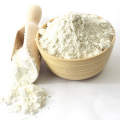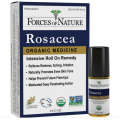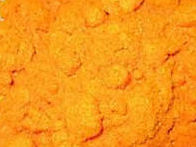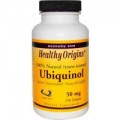 Loading... Please wait...
Loading... Please wait...- Home
- About Us
- Shipping, Returns & FAQ's
- Contact Us
-
For Your Information
- Canadian Customers Have a Choice if Shipping Via UPS
- Aura Cacia Homemade Aromatherapy Recipes
- Bella Nella Altered Art & Paper Crafts Blog
- Forms of Herbal Preparations
- Laundry Tips To Conserve Energy Blog from The Laundress
- The Story of Frontier Natural Products Co-Op
- Sovereign Silver Hydrosol and Aloe Protocol Stops Downward Spiral of Gut Dysbiosis
- Disclaimers
- Recommended Links
- RSS/Recent News
- The Story of Typhoon Housewares
- Reviews/Testimonials
- Raw Ingredients for Mfg
- Home
- Supplements
- Coenzyme Q10/Co-Q10
- Coenzyme Q10 (CoQ10, Ubiquinone) Powder Bulk
- Home
- Raw Materials
- Antioxidants
- Coenzyme Q10 (CoQ10, Ubiquinone) Powder Bulk
Coenzyme Q10 (CoQ10, Ubiquinone) Powder Bulk
Product Description
Coenzyme Q10 (CoQ10) is a substance similar to a vitamin. It is found in every cell of the body. Your body makes CoQ10, and your cells use it to produce energy your body needs for cell growth and maintenance. It also functions as an antioxidant, which protects the body from damage caused by harmful molecules.
Claimed uses include It is said to help heart failure, as well as cancer, muscular dystrophy, and periodontal disease. It is also said to boost energy and speed recovery from exercise. Some people take it to help reduce the effects certain medicines can have on the heart, muscles, and other organs.
Coenzyme Q-10 was first identified in 1957. The “Q-10” refers to the chemical make-up of the substance. These days coenzyme Q-10 is used by millions of people in Japan for heart disease, especially congestive heart failure. Coenzyme Q-10 is also used extensively in Europe and Russia. Most of the coenzyme Q-10 used in the US and Canada is supplied by Japanese companies. Coenzyme Q-10 is manufactured by fermenting beets and sugar cane with special strains of yeast.
Dosage Oral
- For known coenzyme Q-10 deficiency: 150 mg daily.
- For mitochondrial disorders (mitochondrial encephalomyopathies): 150-160 mg, or 2 mg/kg/day. In some cases, doses may be gradually increased to 3000 mg per day.
- For heart failure in adults: 100 mg per day divided into 2 or 3 doses.
- For reducing the risk of future cardiac events in patients with recent myocardial infarction: 120 mg daily in 2 divided doses.
- For high blood pressure: 120-200 mg per day divided into 2 doses.
- For isolated systolic hypertension: 60 mg twice daily.
- For preventing migraine headache: 100 mg three times daily. A dose of 1-3 mg/kg has also been used in pediatric and adolescent patients.
- For Parkinson’s disease: 300 mg, 600 mg, 1200 mg, and 2400 mg per day in 3-4 divided doses.
- For HIV/AIDS: 200 mg per day.
- For infertility in men: 200-300 mg per day.
- For muscular dystrophy: 100 mg per day.
- For pre-eclampsia: 100 mg twice daily starting at week 20 of pregnancy until delivery.
Dividing the total daily dose by taking smaller amounts two or three times a day instead of a large amount all at once can help reduce side effects.
In the skin care industry, CoQ10 (in a skin cream, for example) can be helpful. In most people over thirty, levels of CoQ10 in the skin are below optimum, resulting in lesser ability to produce collagen, elastin and other important skin molecules. Besides, CoQ10-depleted skin may be more prone to the damage by free radicals, which are particularly abundant in the skin since it is exposed to the elements. Thus, CoQ10 may boost skin repair and regeneration and reduce free radical damage.
Suggested Usage: 0.3 - 3%
Solubility: Soluble in oil
INCI: Ubiquinone/Ubidecarenone
Do not directly apply onto your skin.
Specifications are subject to change without notice.
*FDA disclaimer
References
webmd
smartskincare.com
You Recently Viewed...
Currency Converter
Choose a currency below to display product prices in the selected currency.




























